Swallows & bats “massacred in batches” (Fairhaven, Mass.)
Aug 13, 2013
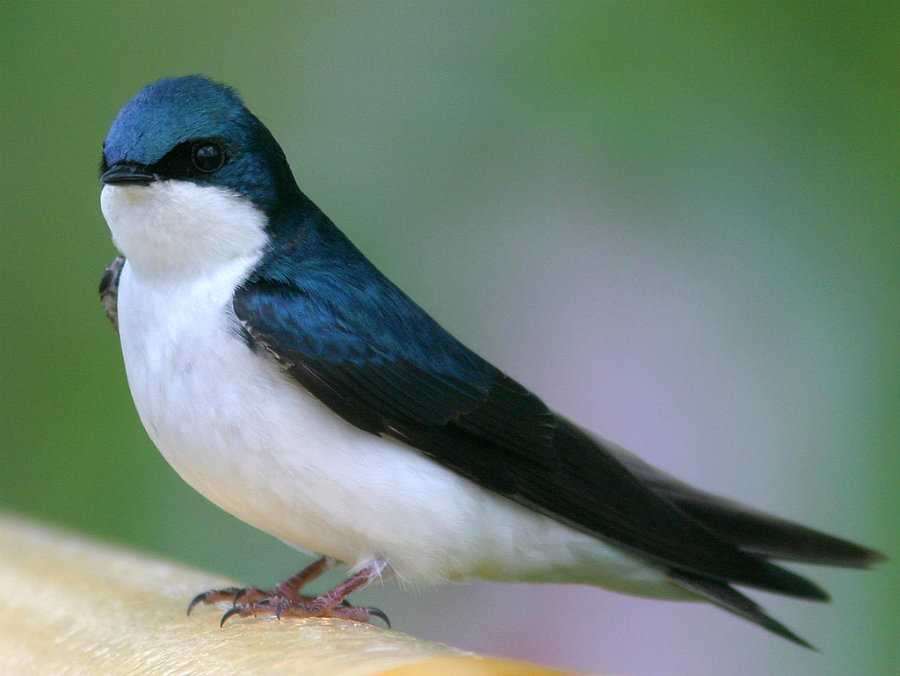
—Curt Devlin, Fairhaven, MA
These pictures are emblematic of what happens when birds and turbines share the same environment. They were taken by one of the folks in Fairhaven soon after the turbines went up. There can be no doubt regarding its authenticity because the chain link fence and black bolts are somewhat distinctive due the special construction technique used to anchor the turbines into the granite shelf here.
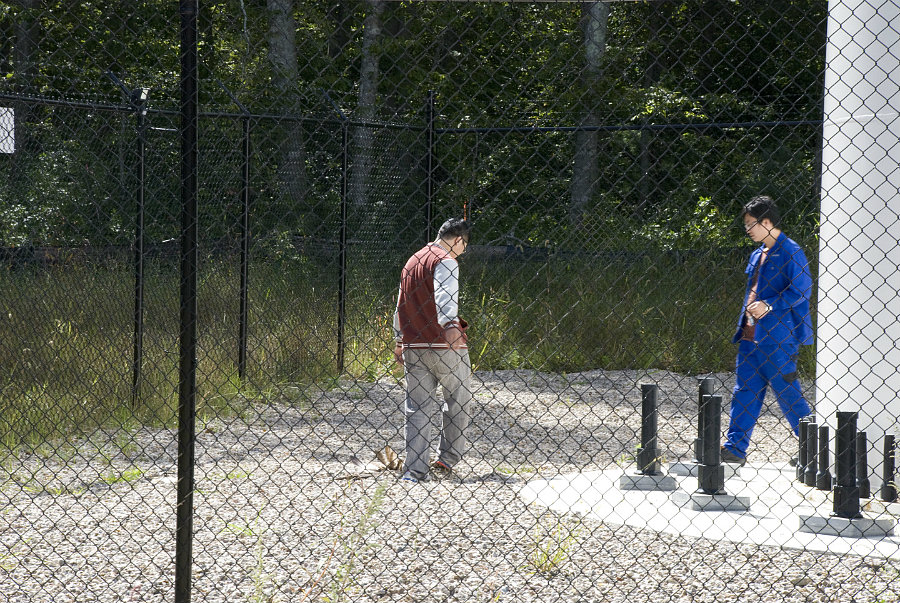
One depicts one of the Chinese engineers from Sinovel (a Chinese manufacturer), kicking dirt over the broken body of a hawk killed by the turbine blade to hide it from view. Turbines of this size may look slow and graceful from a distance, but the actually rotate at a tip speeds approaching 200 mph.
Once the turbines went up, what we observed was a pattern that has resulted in a fairly routine massacre of birds around the marsh. First, the turbine nacelle collects heat throughout the day. Then, as the air cools in the evening, the lingering warmth attracts various swarming insects such as mosquitos. The mosquitos attract bats and smaller predators like swallows and such. They are massacred in batches.
This pattern was so prevalent that someone from the wind developer was sent in the morning to walk the grounds beneath the turbines looking for corpses. Sometimes, the harvest would fill a hefty bag. This was done to hide the carnage because the developer has assured the town that turbines don’t pose a danger to birds. I presume many more were flung into the dense undergrowth, undetected or obliterated by direct hits from the blades.
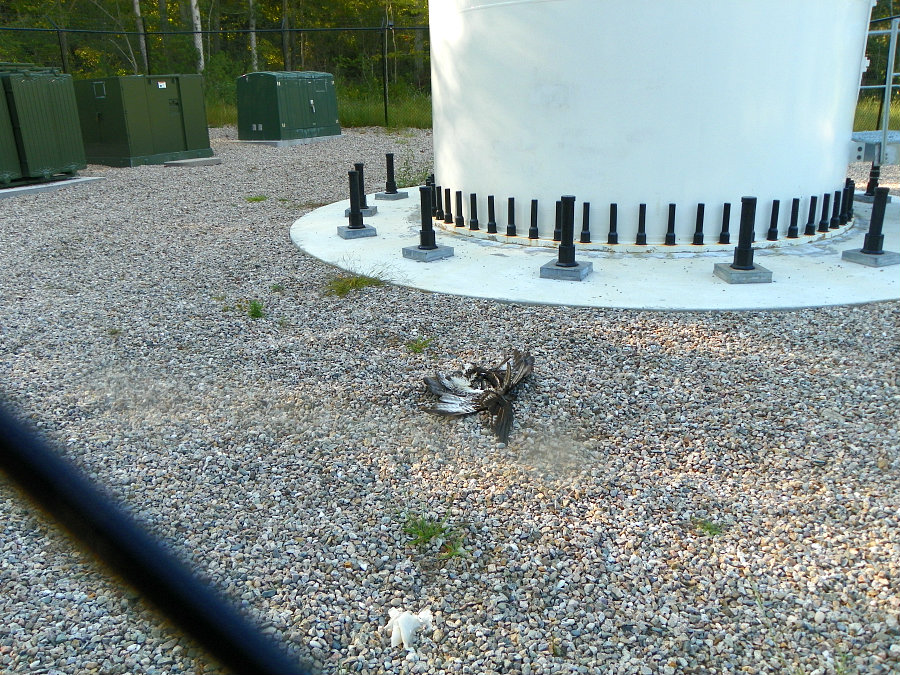
Finally, as bats and smaller birds preyed on the mosquitos, they also attracted larger predators like hawks. You can see this final result for yourself. Gradually, of course, the pace of carnage slowed. I presume this is due to the depletion of the species that once inhabited the marshes there. The population of mosquitos appears to remain prolific, however.
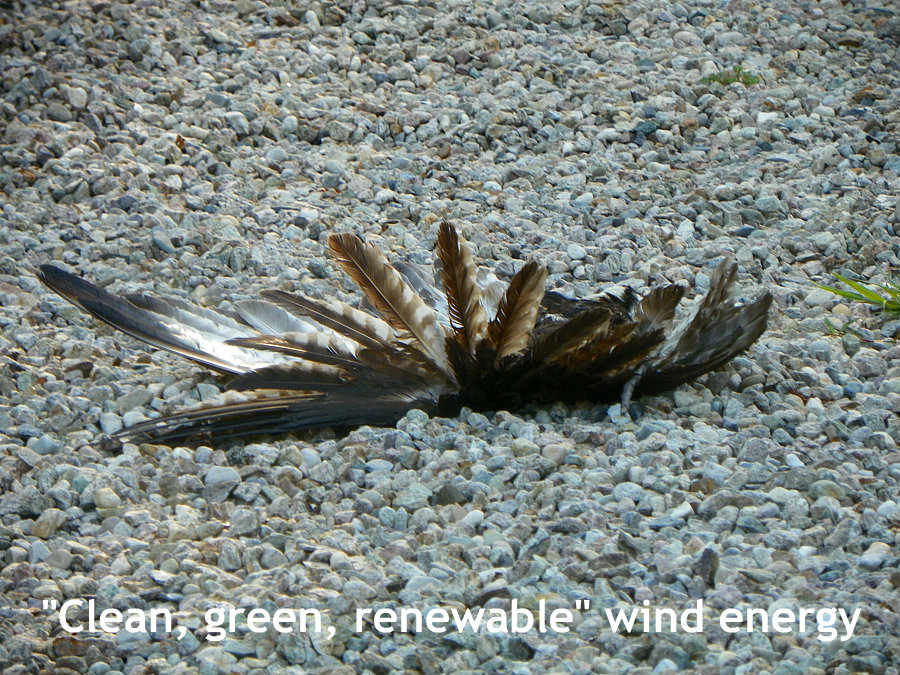
.
Editor’s note: Photos courtesy of Earl Jorgensen, Fairhaven, MA.
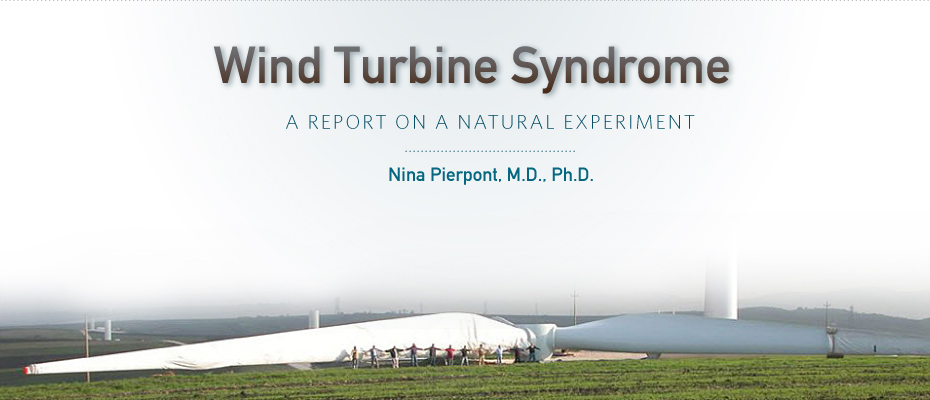
Comment by Tom Whitesell on 08/13/2013 at 9:44 pm
Corporate butchery!
Comment by mark duchamp on 08/13/2013 at 11:50 pm
The extent of the carnage has been denounced here:
Click here for a staggering worldwide estimate.
Mark
Comment by Melodie Burkett on 08/14/2013 at 7:00 am
Where are all the green lobbyist now? Bastards!
Losing all our birds and bats will have more serious consequences than the so-called global warming hoax.
“There will be weeping and gnashing of teeth” (Biblical prophesy).
Comment by Sherri Lange on 08/14/2013 at 9:42 am
The photos say it all! We have not begun to estimate the carnage and death count, along with loss of habitat and utter cruelty.
As Duchamp has pointed out: turbines attract and act as executioner at the same time.
This issue must hit the front pages of news outlets and that, fast. Species are becoming extinct from this folly.
Thanks for the article and pictures, which we will add to wildlifehell.org.
Comment by Jim Wiegand on 08/14/2013 at 12:21 pm
This explains perfectly why we are looking at species extinction and that the wind industry’s hidden slaughter is in the millions each year. It also explains why the industry rigs their mortality studies and insist on using gag orders.
What it doesn’t explain is why communities, judges, conservation groups, and politicians tolerate this fraud and destruction from a Zombie green movement.
I will soon provide solid evidence, and have a lot more to say, about the wind industry’s bird and bat genocide.
Comment by The King Slayer on 08/14/2013 at 4:39 pm
There have been reports that garbage bags filled with dead bats were carried away from the Fairhaven turbine site when the blades started to spin. I, personally, have seen about a half dozen on the ground under the Fairhaven turbines.
Some species of bats can eat 500-1000 mosquitoes in one hour. If we consider the night to be 8 hours, that can add up to 4000-8000 in a night. Given the fact that mosquitoes have been known to carry West Nile and EEE, a local threatened bat population is not ideal…
What of the new nesting guest on nearby West Island Piping Plovers? (You know, the Endangered Species Piping Plovers!) Will the outrage begin when one of those comes spiraling down out of the sky?
Comment by Curt Devlin on 08/14/2013 at 4:45 pm
I have been remiss for not giving the photographer his due credit. Earl Jorgensen, a resident of Fairhaven, took these very vivid, powerful, and disturbing shots.
I have one more from Earl which I will pass along to the editor, should he wish to post it—perhaps the most disturbing one of all.
Comment by Frank Haggerty on 08/14/2013 at 5:00 pm
There are four Sinovel 1.5 Megawatt turbines in Massachusetts . Scituate, Charlestown and two in Fairhaven
http://www.bostonglobe.com/business/2013/08/12/sec-charges-former-american-superconductor-exec-with-insider-trading/3JKX8hF8C3pvuF66BDbWkK/story.html
Plea, fine settle securities fraud, insider trading case
Charges stem from AMSC’s loss of Chinese wind-turbine customer
By Beth Healy
| Globe Staff
August 12, 2013
A former American Superconductor Corp. executive has agreed to plead guilty to criminal securities fraud and pay $170,000 to settle separate civil charges of insider trading, after profiting on news that the Devens company was losing a major Chinese customer — one it would later accuse of stealing technology.
Joseph M. Tocci, 59, of Belmont, was assistant treasurer at American Superconductor when he learned in March 2011 that there was a problem with the company’s largest client, Sinovel Wind Group Co. of Beijing, according to a civil complaint filed Monday by the US Securities and Exchange Commission.
Sinovel had failed to pay for $100 million in past shipments from American Superconductor, which makes software for wind turbines, and was refusing to receive $700 million more in orders.
The company’s chief financial officer warned Tocci and other colleagues to keep the Sinovel news confidential, according to the complaint filed in US District Court in Boston. Yet Tocci traded on the information, buying option contracts that would rise in value if the company’s stock price fell.
Days later, American Superconductor disclosed the Sinovel news to shareholders, and the stock price plunged 42 percent. Tocci earned illegal profits of about $82,439, the SEC said. In his settlement, Tocci agreed to repay those funds, plus interest and a fine equal to the profits.
The SEC said Tocci also has agreed to plead guilty in a related criminal case brought by the US attorney in Massachusetts, alleging securities fraud. A lawyer for Tocci did not return a call seeking comment.
The insider trading charges follow a long legal battle between American Superconductor and Sinovel over the alleged theft of technology.
American Superconductor has sued Sinovel in China for more than $1.2 billion, alleging that the company copied its software to operate wind turbines.
The Devens company, which does business as AMSC, saw revenue plunge when it lost the Sinovel business and laid off about 60 percent of its 842 workers around the world.
American Superconductor develops software and equipment to regulate the flow of electricity from wind turbines to electrical grids.
The matter sparked outrage among US politicians and in corporate America, which has been pressuring the government to fight back against theft of intellectual property.
In June, a federal grand jury convened in Wisconsin indicted the Chinese wind turbine maker on charges that it stole trade secrets from American Superconductor.
US Attorney John W. Vaudreuil, of the Western District of Wisconsin, called the case at the time “a well-planned attack on an American business by international defendants nothing short of attempted corporate homicide.”
Sinovel has denied the charges.
Beth Healy can be reached at bhealy@globe.com.